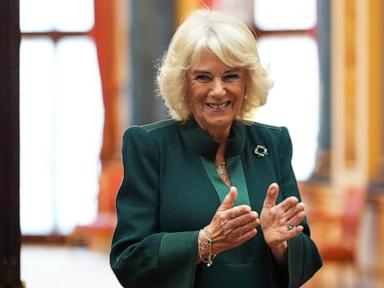ARTICLE AD BOX
The Kerem Shalom crossing between Israel and Gaza opened on Sunday for aid trucks for the first time since the outbreak of war, officials said, a move intended to double the amount of food and medicine reaching the enclave.
The crossing had been closed after an Oct. 7 attack by Hamas and aid was being delivered solely through Gaza's Rafah crossing with Egypt, which Israel said could only accommodate the entry of 100 trucks per day.
Two sources in the Egypt Red Crescent told Reuters that trucks were starting to enter on Sunday through the Kerem Shalom crossing on their way into Gaza. One said there were 79 trucks.
Kerem Shalom, on the border of Egypt, Israel and Gaza, is one of the main transit points for goods in and out of Gaza, allowing much faster transit than the Rafah passenger crossing a few kilometres away.
Israel approved the entry of aid last week.
"Starting today (Dec.17), UN aid trucks will undergo security checks and be transferred directly to Gaza via Kerem Shalom, to abide by our agreement with the US," COGAT, the branch of military which coordinated humanitarian aid with the Palestinian territories, said in a statement.
The Prime Minister's office has previously said this would allow Israel to maintain its commitments to permit the entry of 200 trucks of aid per day, agreed upon in a hostage deal brokered and implemented last month.
Asked if aid had crossed into Gaza, an Israeli official said yes.
Israel had already agreed to allow trucks to be inspected at Kerem Shalom but the trucks had previously been obliged to return to Rafah to cross into Gaza from Egypt. Aid groups had been calling for them to be allowed in directly.
The aid may not reach Gazans, Colonel Elad Goren, head of the civil department at COGAT told Reuters, saying humanitarian agencies in Gaza had not increased their capacity to distribute aid to meet the demand from the influx of Gazans who have fled to the south of the enclave on Israeli advice.
"If the UN won't have the capacity to collect and to distribute, it doesn't matter how many crossings we will open," Goren said. "They cannot rely upon the same mechanism they had before the war.
"We adjusted ourselves," Goren said. "The UN unfortunately didn't."
Relevant UN agencies were not immediately available for comment.
As Israel's campaign in Gaza has gathered pace, the humanitarian situation in the besieged enclave has worsened dramatically with the United Nations and other world bodies warning of severe shortages of food, clean water and medicines.
(Except for the headline, this story has not been edited by NDTV staff and is published from a syndicated feed.)
.png)
 11 months ago
44
11 months ago
44








 English (US)
English (US)